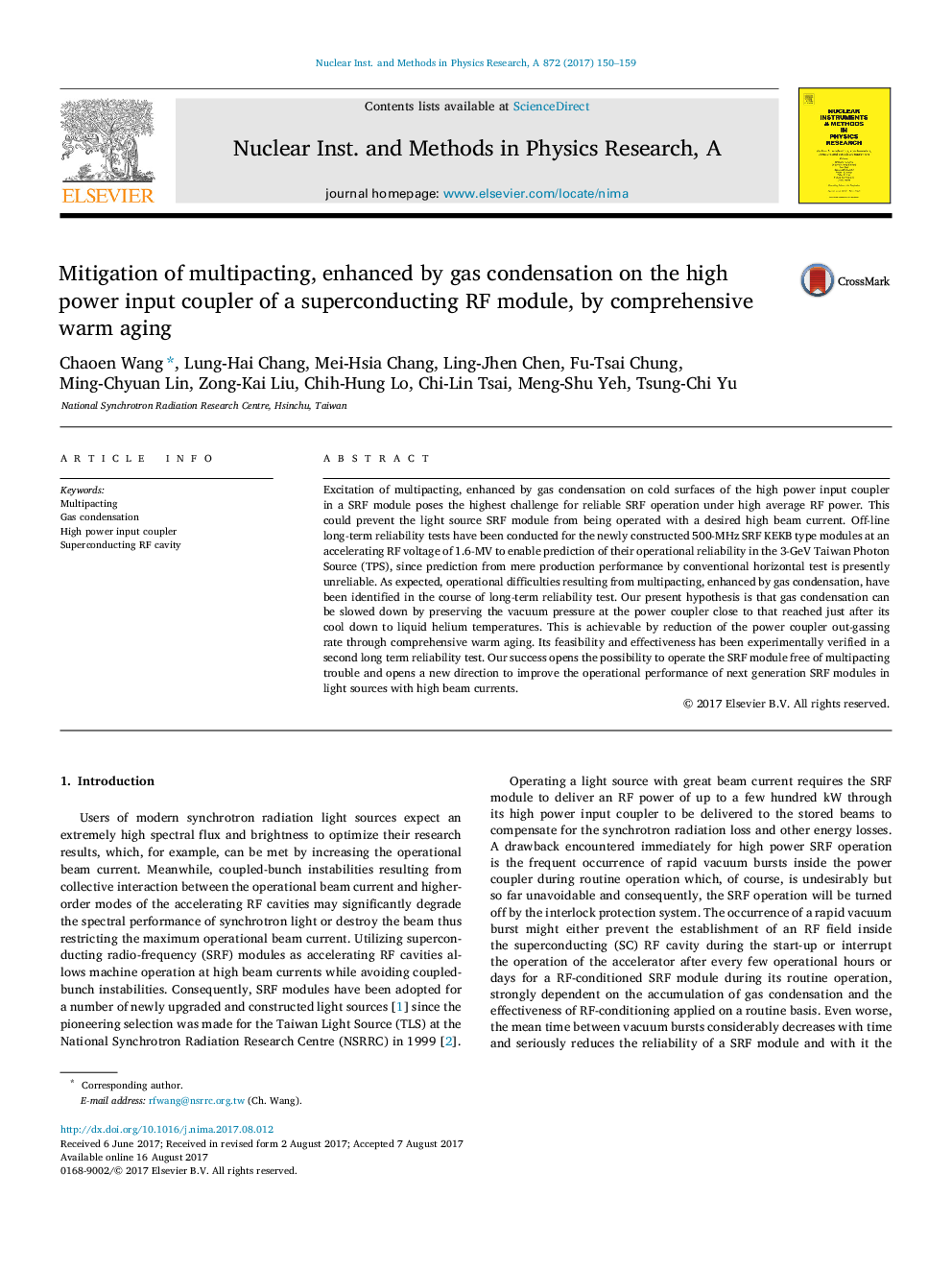| Article ID | Journal | Published Year | Pages | File Type |
|---|---|---|---|---|
| 5492707 | Nuclear Instruments and Methods in Physics Research Section A: Accelerators, Spectrometers, Detectors and Associated Equipment | 2017 | 10 Pages |
Abstract
Excitation of multipacting, enhanced by gas condensation on cold surfaces of the high power input coupler in a SRF module poses the highest challenge for reliable SRF operation under high average RF power. This could prevent the light source SRF module from being operated with a desired high beam current. Off-line long-term reliability tests have been conducted for the newly constructed 500-MHz SRF KEKB type modules at an accelerating RF voltage of 1.6-MV to enable prediction of their operational reliability in the 3-GeV Taiwan Photon Source (TPS), since prediction from mere production performance by conventional horizontal test is presently unreliable. As expected, operational difficulties resulting from multipacting, enhanced by gas condensation, have been identified in the course of long-term reliability test. Our present hypothesis is that gas condensation can be slowed down by preserving the vacuum pressure at the power coupler close to that reached just after its cool down to liquid helium temperatures. This is achievable by reduction of the power coupler out-gassing rate through comprehensive warm aging. Its feasibility and effectiveness has been experimentally verified in a second long term reliability test. Our success opens the possibility to operate the SRF module free of multipacting trouble and opens a new direction to improve the operational performance of next generation SRF modules in light sources with high beam currents.
Related Topics
Physical Sciences and Engineering
Physics and Astronomy
Instrumentation
Authors
Chaoen Wang, Lung-Hai Chang, Mei-Hsia Chang, Ling-Jhen Chen, Fu-Tsai Chung, Ming-Chyuan Lin, Zong-Kai Liu, Chih-Hung Lo, Chi-Lin Tsai, Meng-Shu Yeh, Tsung-Chi Yu,
